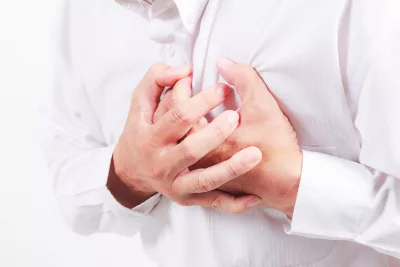Common Signs of Postpartum Calcium Deficiency How to Manage Calcium Deficiency After Childbirth 1. Balanced Diet Rich in CalciumKey sources include dairy (milk, yogurt, cheese), seafood (salmon, sardines, shrimp), dark leafy greens (spinach, kale), and legumes.
Common Signs of Postpartum Calcium Deficiency
- Widespread Body Aches
One of the most recognizable symptoms of calcium deficiency is general body aches, especially in the joints, muscles, and spine. Calcium is essential for maintaining bone and muscle health, and a lack of it can lead to weakened muscles and joints, causing discomfort and reduced mobility. - Frequent Night Cramps and Muscle Pain
Muscle cramps, especially at night or after physical activity, are a common sign of calcium deficiency. These cramps often affect the calves, thighs, or hands and are caused by reduced muscle flexibility and impaired relaxation. - Brittle Nails
Weak and easily broken fingernails and toenails may indicate a calcium deficiency. Calcium helps maintain nail strength, and insufficient levels can cause nails to become thin, brittle, and prone to breaking. - Tooth Pain
Calcium plays a crucial role in dental health. Deficiency may lead to weakened teeth, causing pain during chewing or when exposed to hot or cold temperatures. - Osteoporosis
Postpartum women, especially those breastfeeding, are at higher risk of osteoporosis due to increased calcium loss through milk production. Osteoporosis can make bones more fragile and increase the risk of fractures, especially in the hips and spine. - Frequent Colds and Infections
Calcium supports immune function, so deficiency may weaken the immune response, making mothers more prone to infections such as the flu or common cold. - Poor Sleep Quality
Calcium helps regulate the nervous system and promote relaxation. A deficiency may disrupt this balance, leading to sleep disturbances, insomnia, or restless sleep. - Dry, Slow-Healing Skin
Calcium supports skin hydration and healing. Deficient levels can lead to dry, flaky skin and slower wound healing, increasing the risk of infections. - Hair Loss
Hair loss is another common symptom of calcium deficiency after childbirth. Calcium is essential for hair follicle health and growth. Lack of calcium may cause hair to weaken and fall out more easily, affecting a mother’s confidence.
How to Manage Calcium Deficiency After Childbirth
1. Balanced Diet Rich in Calcium
Key sources include dairy (milk, yogurt, cheese), seafood (salmon, sardines, shrimp), dark leafy greens (spinach, kale), and legumes.
2. Boost Vitamin D Intake
Vitamin D enhances calcium absorption. Sunlight exposure for 10 -15 minutes daily is a natural source. Consider supplements if needed.
3. Gentle Physical Activity
Postpartum-friendly exercises like walking or yoga can stimulate calcium metabolism, strengthen bones, improve sleep, and reduce stress.
4. Avoid Calcium Absorption Inhibitors
Limit caffeine, alcohol, and highly processed foods that may hinder calcium uptake.
Why Timely Supplementation Matters
Proper calcium intake after childbirth is crucial for preventing bone issues, relieving fatigue, and supporting the baby’s growth. For optimal care, regular medical check-ups are highly recommended.
You can explore the Maternity Care Program at Hanoi French Hospital – scientifically designed for every stage of pregnancy, monitored by a team of experienced obstetricians to ensure a safe and healthy journey for both mother and baby.








